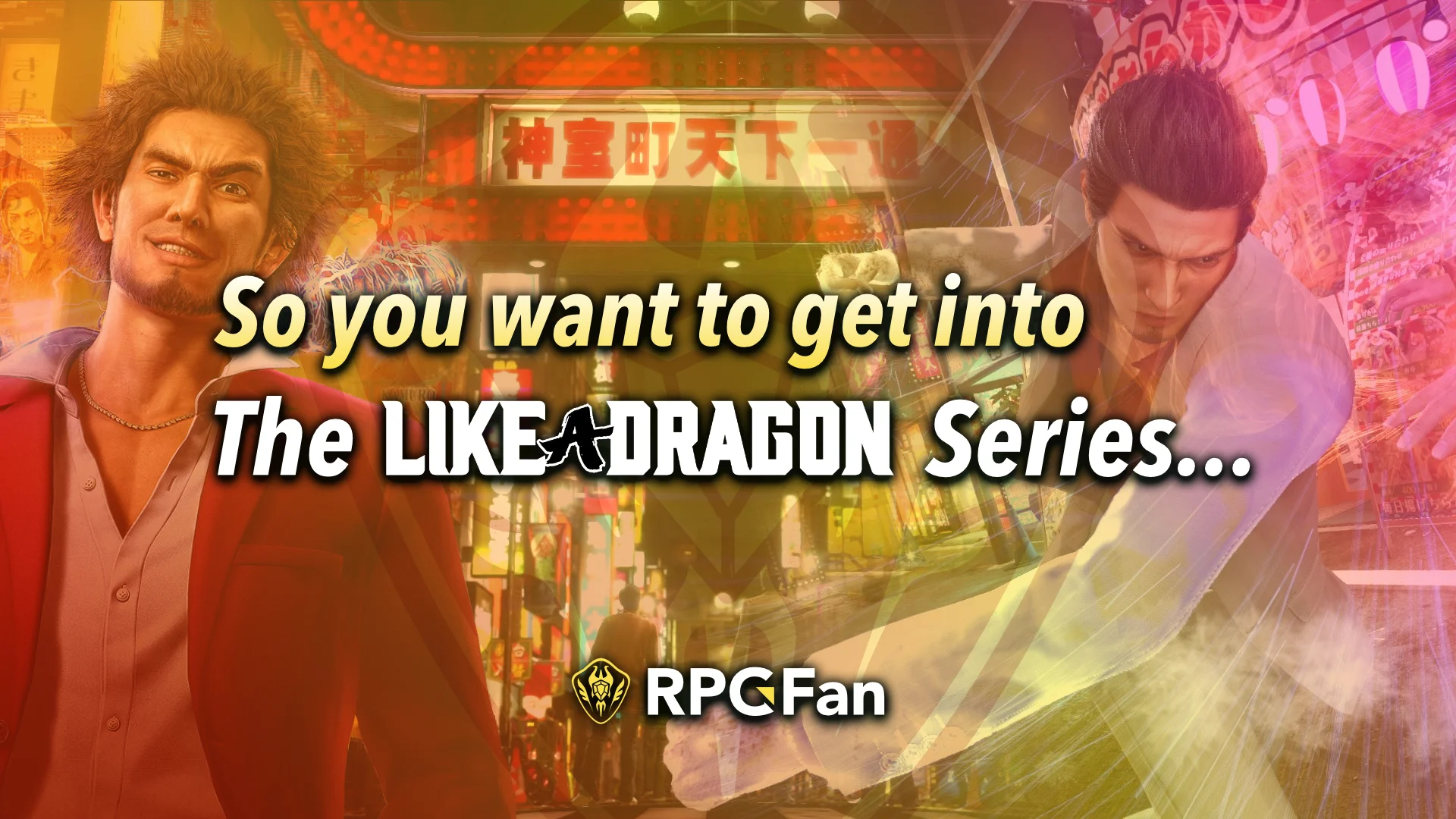Quick question: What’s your tolerance for operatic melodrama? You know what? Better question: Can you play riichi mahjong? Not enough people know how…
Actually, nevermind, we’ve got an even better question: Have you heard of the Yakuza (AKA, Like a Dragon) series? Known as Ryu Ga Gotoku (translated as “Like A Dragon”) in Japan, it’s a long-running crime drama series revolving around the lives of characters caught in the crosshairs of organized crime (usually the Tojo Clan) and the criminal justice system in Japan. The series explores how society views those who have been on opposite ends of the law and one’s duty to themselves and those they’re responsible for. Oh, and it was created by the Super Monkey Ball guy.
Note: This primer was originally published several years ago, but we update it from time to time with adjustments and new games. This update adds Like a Dragon: Infinite Wealth and more small changes.
Browse the complete So you want to get into The Like a Dragon Series feature:
Describing Like a Dragon/Yakuza To Someone Who’s Never Played It
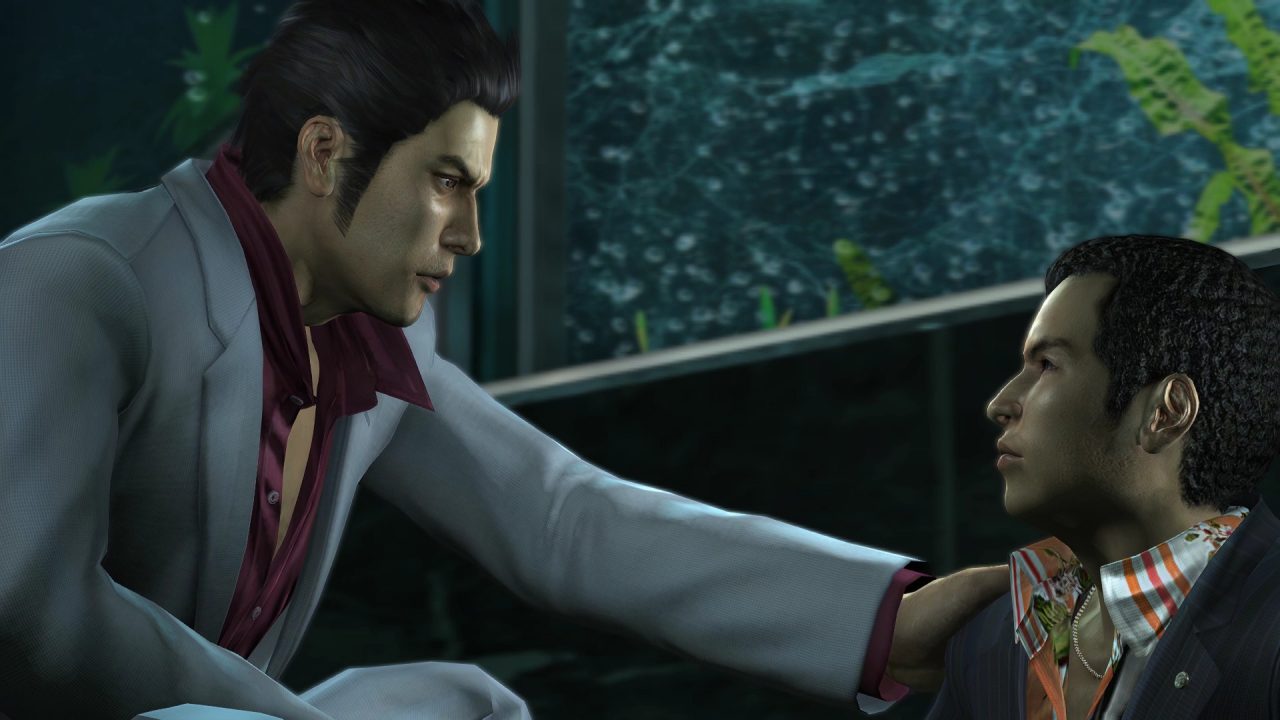
The broader Ryu Ga Gotoku Universe (or as we absurdly prefer: The Ryu Ga Galaxy) can seem unbelievably dense at first glance. It contains multiple spin-offs, follows the lives of multiple protagonists, and transcends its action RPG origins in its most recent entries. It’s a series known for its emotional intensity and deep characterization mixed with over-the-top, nonsensical twists and climaxes. But saying “Yakuza is a sandbox action RPG with a beat-em-up/turn-based combat system” spectacularly glosses over each entry’s massive assortment of minigames and bite-sized life lessons built into every side quest. It does not mention Yakuza’s melodramatic-noir narrative mashed up with moments of somber melancholy, satisfying self-reflection, and baffling absurdity. Your audience will be unaware you can play Virtua Fighter and other SEGA Arcade classics at the recreated Club SEGA arcades. They don’t know the cities in Yakuza are incredibly faithful (yet still creatively flexible) representations of real-life locations. Not even once is mahjong referenced!
In our experience, the best way to describe Yakuza is to ask, “What if a SEGA arcade game could punch you in the face after tragically explaining its backstory? And then, what if you went off to play Riichi Mahjong together afterward?”
Yakuza is about many different things and one thing at the same time. Topics range from dealing with survivor’s guilt to exposing government corruption to exploring one’s ambitions. These ideas are all covered in extensive detail in their respective games, though always through a masculine lens.
Masculinity is ever-present in RGG Studio’s work, for better or worse. No matter which entry in the broad Ryu Ga Gotoku line-up you dig into, masculinity and the relationships between its male characters will be at the heart of its discussion. Addressing toxic male stereotypes, deconstructing societal expectations of men, and encouraging men to share love and honesty toward each other are all mainstays of the Yakuza brand.
Important Faces You’ll Fall in Love With
It may surprise you to learn that many fan-favorite characters in Yakuza only appear in one or two games in any significant fashion. The series has a constantly changing cast. Villains rarely, if ever, make a return. Allies aren’t always tapped for assistance and are at other times indisposed. The player characters themselves are swapped out or absent depending on each specific entry’s needs.
Here’s a quick rundown of Yakuza’s “must-know” characters. Most of them are protagonists of their respective games, but there are a couple of honorable mentions who make Yakuza what it is:
Kazuma Kiryu
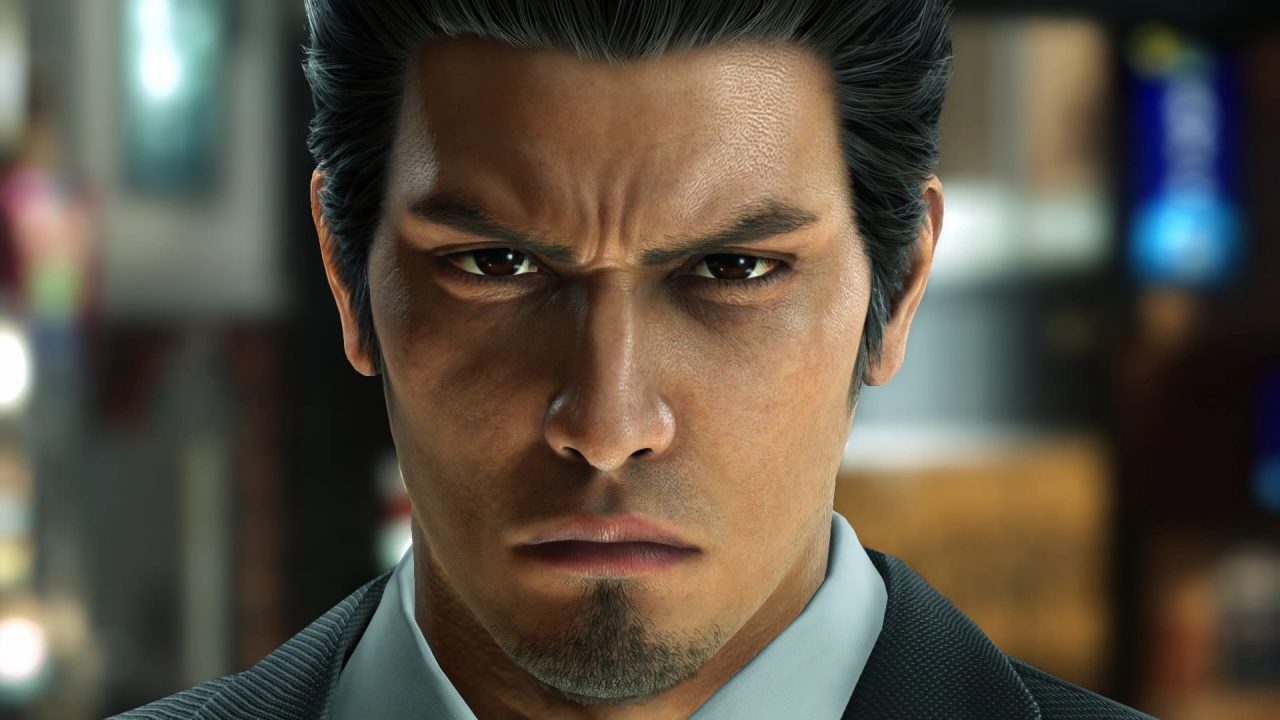
From his first appearance in Yakuza for PS2 in 2005, Kiryu always put the interests of his loved ones ahead of his own. For example, he intentionally took the fall for a murder committed by his best friend and spent a decade in prison without a single complaint. He’s just that kind of guy.
Kiryu is a no-nonsense bruiser with a heart of gold. No matter how strange the request, the big guy can’t help but assist whoever’s asking. You’ll bear witness to him losing his ideals, renewing his convictions in the fires of fatherhood, wrestling with existential angst over the purpose of his existence, and riding the line between happiness and a sense of duty. And somehow, the Tojo Clan will always be involved.
Kiryu’s also grown as he’s been exposed to new perspectives; Many substories revolve around the trying and often absurd situations he finds himself in and how this challenges his generally narrow way of thinking. It’s fascinating to see a grown man (and video game protagonist) learning to understand others throughout the series. All the while watching him indulge in the simple joys of Pocket Circuit Racing or calling Ron on a final discard, with thirteen orphans in his hand (don’t worry, he has more at home).
Haruka Sawamura
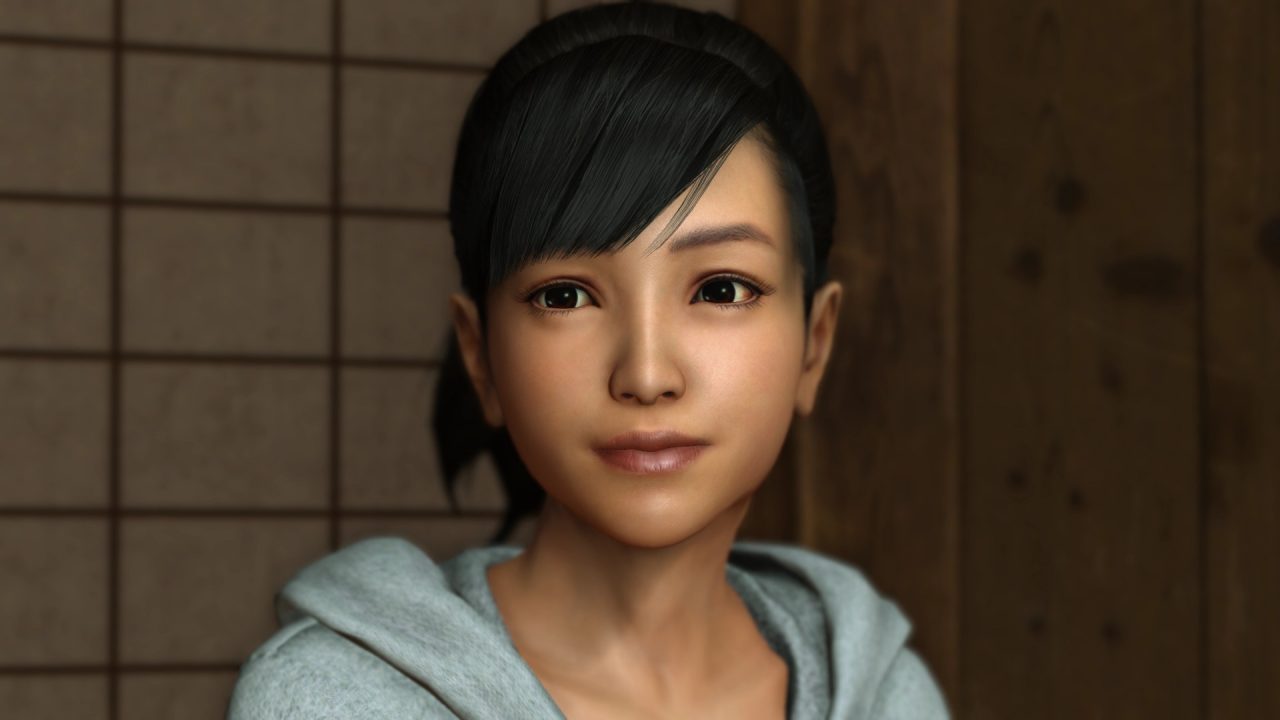
Haruka Sawamura is the young girl at the very center of the first game in the series. Sweet, pure, and with a shocking streak of self-determination, she is ever-present in Yakuza games, even many of the spin-offs. Whenever Kiryu is lost in his thoughts or unable to muster the will to take action, she’s ready to give him a pep talk (or, more frequently, get kidnapped, which functionally serves the same purpose).
Veterans of the series have essentially watched her grow up, culminating in Yakuza 5 when she finally becomes a playable character—with the caveat she isn’t a fighter. So, if you were hoping to tiger drop skeevy individuals as a quietly powerful idol-in-training, prepare to be disappointed. We certainly were. Thankfully, the rhythm game dance battles she partakes in instead aren’t half-bad either!
Goro Majima
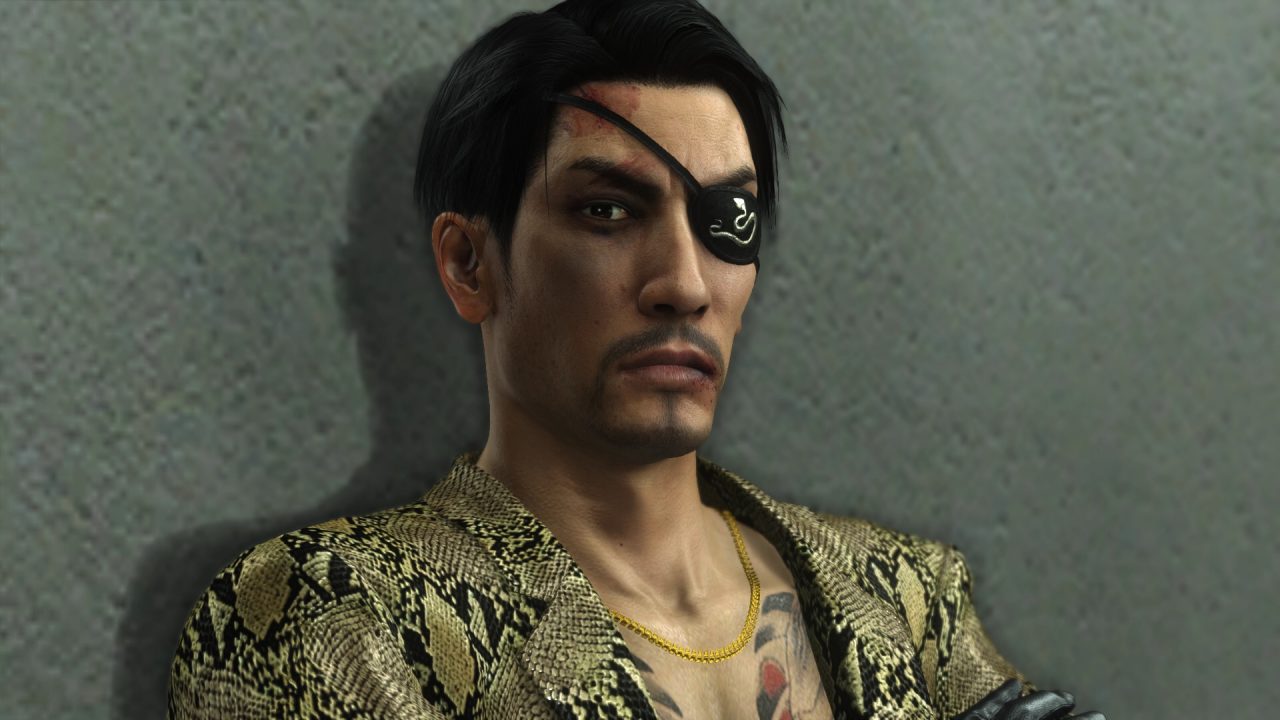
In a post-Yakuza 0 world, there’s a sixty-percent chance you’re interested in playing because of Goro Majima.
Originally introduced as an unpredictable loose cannon, hellbent on causing Kiryu grief for reasons all his own, the Mad Dog of Shimano grew into a more complex character with every entry. He’s a fan favorite for a reason. But underneath the wacky personality is a mind as sharp as his knife, which literally glows with his powerful aura. Regardless of which entry he appears in, Majima simply steals the show whenever he’s on screen (and in the case of 0, the entire plot)!
Ichiban Kasuga
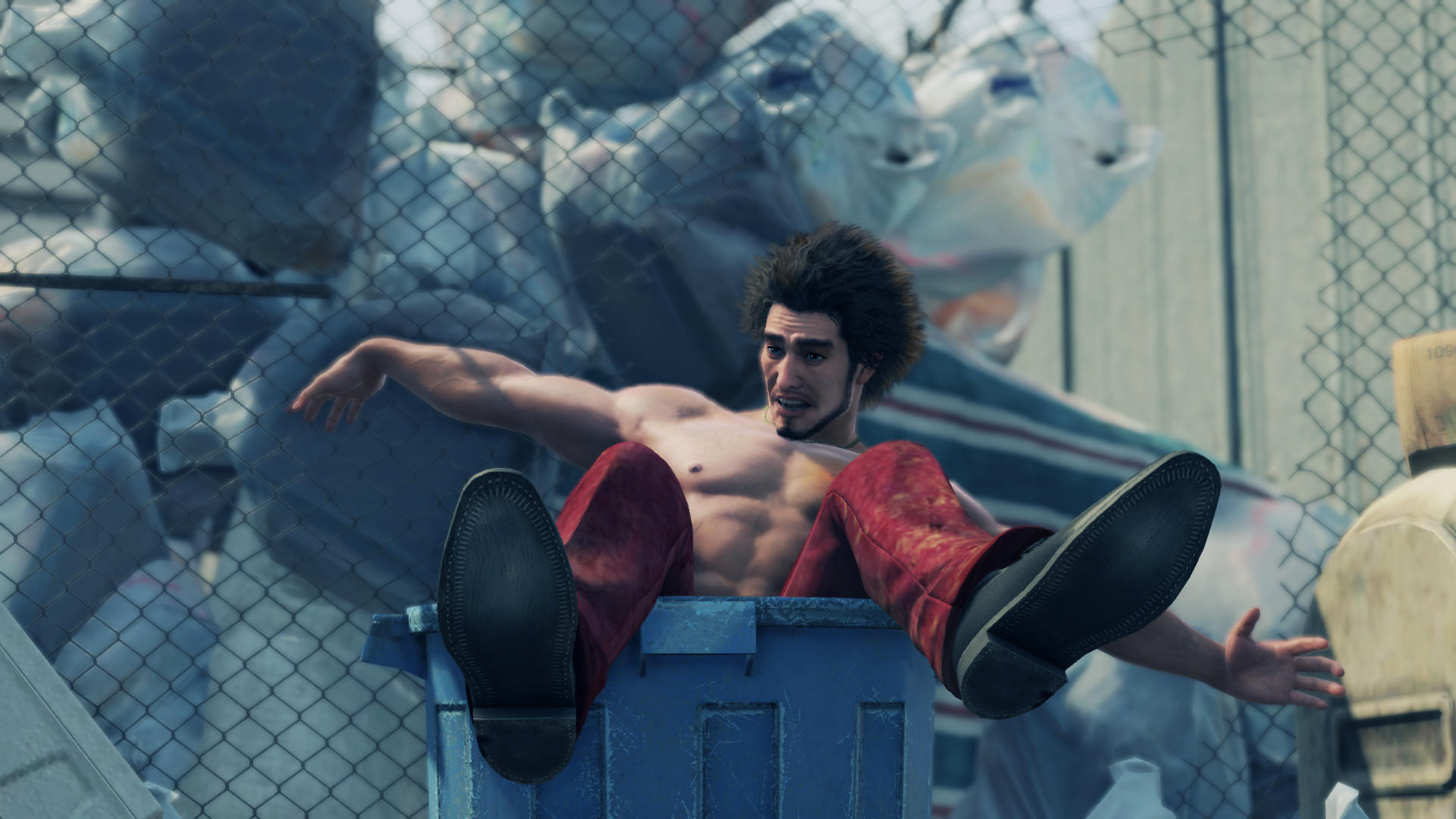
A promising young member of the Tojo Clan takes the fall for a crime he didn’t commit to protect those he loves. Sound familiar? Well, meet Ichiban Kasuga!
Despite having a similar backstory and filling the role of the main protagonist in Yakuza: Like a Dragon and Like a Dragon: Infinite Wealth, Ichiban is a very different character from Kiryu. He is much more friendly and lighthearted, greeting everyone from allies to potential enemies with a smile on his face. While Kiryu is an impervious brick wall, Ichiban is an open book, seeing the best in everyone until he is proven wrong. And even when that happens, he will still fight for his friends, striving to save them from the darkness.
Takayuki Yagami
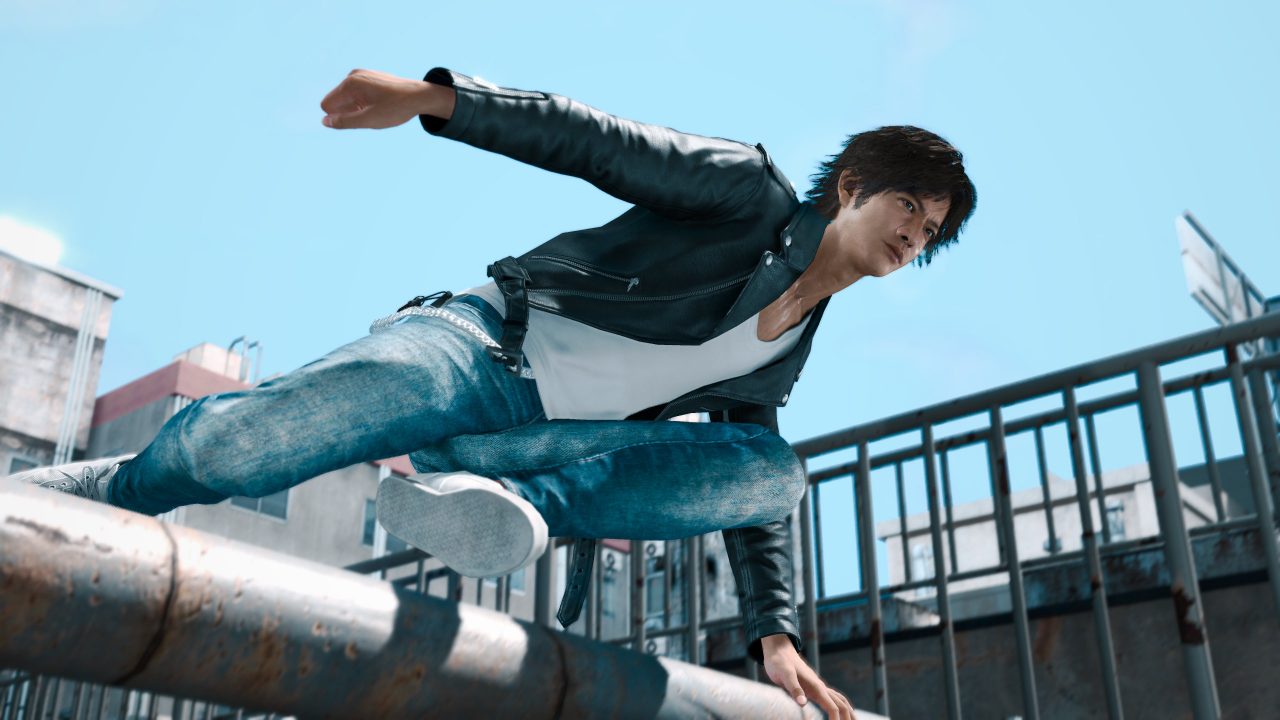
The lead of the Judgment series, Takayuki Yagami, is a very different man from most Yakuza protagonists. For one thing, he isn’t a yakuza (although he does have ties to the Tojo Clan. Shocking, we know). Instead, he is a former defense attorney who lost faith in his profession after a personally devastating case. Becoming a private detective, he now fights for justice on the streets of Kamurocho, protecting his clients and uncovering all evidence of wrongdoing in the city.
Much like other series protagonists, Yagami shares a penchant for getting into random street brawls (and an inability to say “no” to any random person on the street asking for help). With a mastery of various forms of combat, Yagami’s fighting style is a throwback to the action RPG days of the series, but he isn’t just a simple brawler! He also uses his head to investigate crimes and protect the innocents who come to him for help. There are sections where you must investigate crime scenes and collect evidence to trap criminals in lies—think a more lightweight version of the Ace Attorney series.
The City of Kamurocho
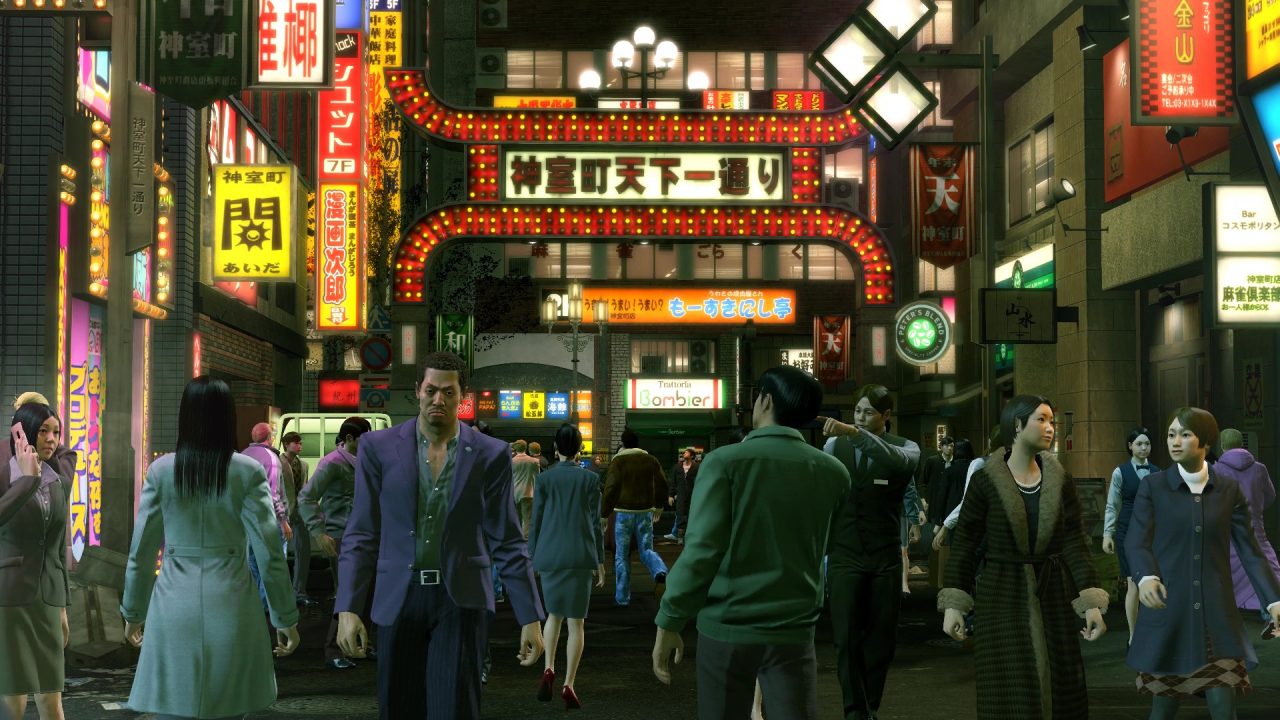
Kamurocho is so much more than a sandbox of minigames and play-spots. It’s a city where our “regulars” hang out. It’s a place we get to know intimately, down to her hidden alleys and secluded rooftops. Where we eventually memorize every convenience store location, mahjong parlor, and arcade, and maybe even stop by our favorite karaoke bar for a couple of songs. Y’know, for old time’s sake!
This city grows alongside the series and its characters. Between 1988 and the modern day, you will watch as businesses grow and change with the times. A disappointed sigh at your favorite restaurant or mini-game area closing down can be replaced with the joy of its return or a new activity built where the old one stood. And much like the city itself, the people you meet in Kamurocho will live their lives between entries, and you’ll see the fruits of their labor and the consequences of their actions whenever you return.
Like checking in on an old friend, the city of Kamurocho welcomes you into its arms every visit and wastes no time catching up with you.
Should You Start with Yakuza or Yakuza 0?
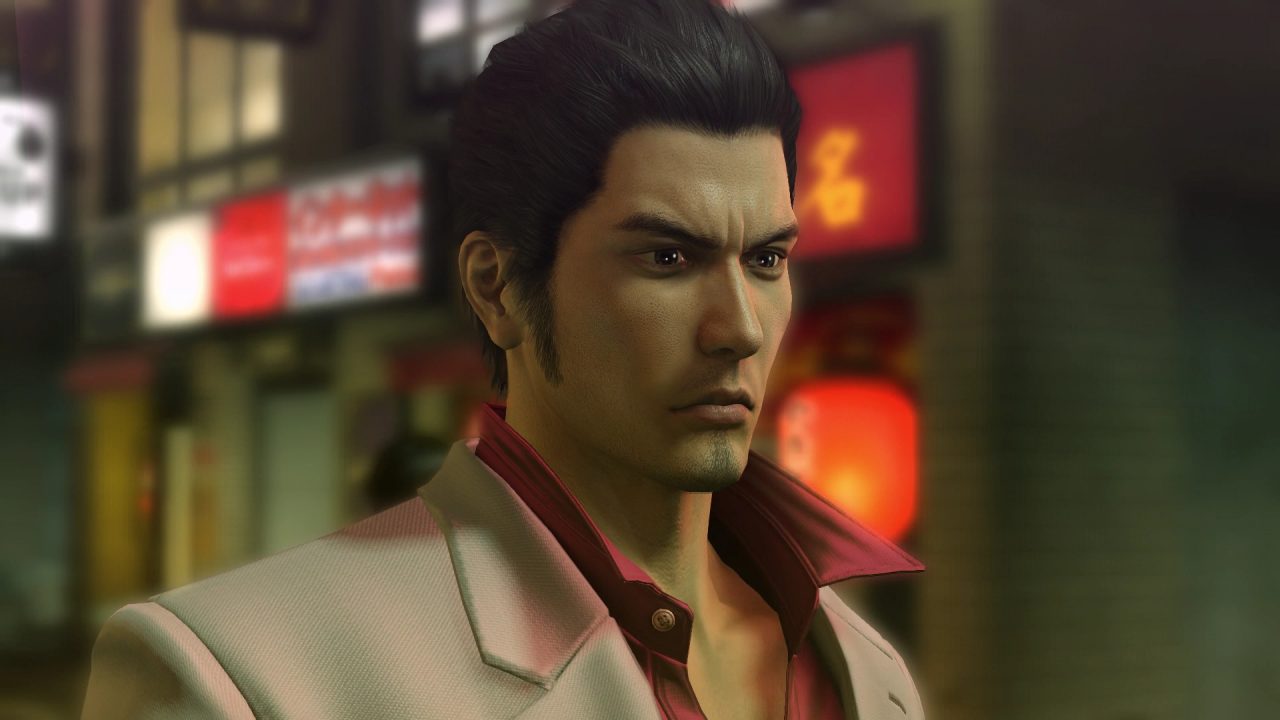
The short answer? Yakuza 0. The longer answer? Depends on what you’re looking for.
The original Yakuza for PS2 is a recommended starting point for purists and historians. It’s held up surprisingly well since its release in 2005, primarily due to its comparatively grounded story and modest scale. The fighting system and minigames are still relatively sound, and it retains a strong stylistic approach to its environment and character models, avoiding the retroactive uncanny valley. Plus, recent reprints in the last decade have also made it easy and affordable to acquire (this extends to Yakuza 2 as well).
Just be aware: you either love or hate the Western localization of this first entry. Some of Yakuza’s intended tone was literally lost in translation, with extra swearing added into character dialogue. Long loading times and a top-down, almost isometric camera can cause a jarring change of perspective moving from one area to the next. Completionists will struggle with missable substories and collectibles. There is no mahjong!
It does, however, have Mark Hamill doing the voice of Goro Majima. So, there’s that!
But what about Yakuza’s remake, Yakuza Kiwami, released in 2016? Unfortunately, ten years of video game evolution required a balancing act between the original story and ideas from 2005 and the completely different directions the series has gone since. This attempt to merge the old with the new arguably resulted in an awkward execution of ideas.
That said, Kiwami does bring all the added bells and whistles of fifteen years of development! If the side content of the series is what catches your eye, Kiwami allows you to experience the original story (completely faithful to the PS2 version) with a contemporary sandbox full of different minigames and smaller activities to keep you busy (and hopefully, having fun).
With this in mind, it might be more beneficial to think of Yakuza Kiwami as a sequel or DLC to Yakuza 0 rather than a logical starting point of the series (even though it is a remake of the first game).
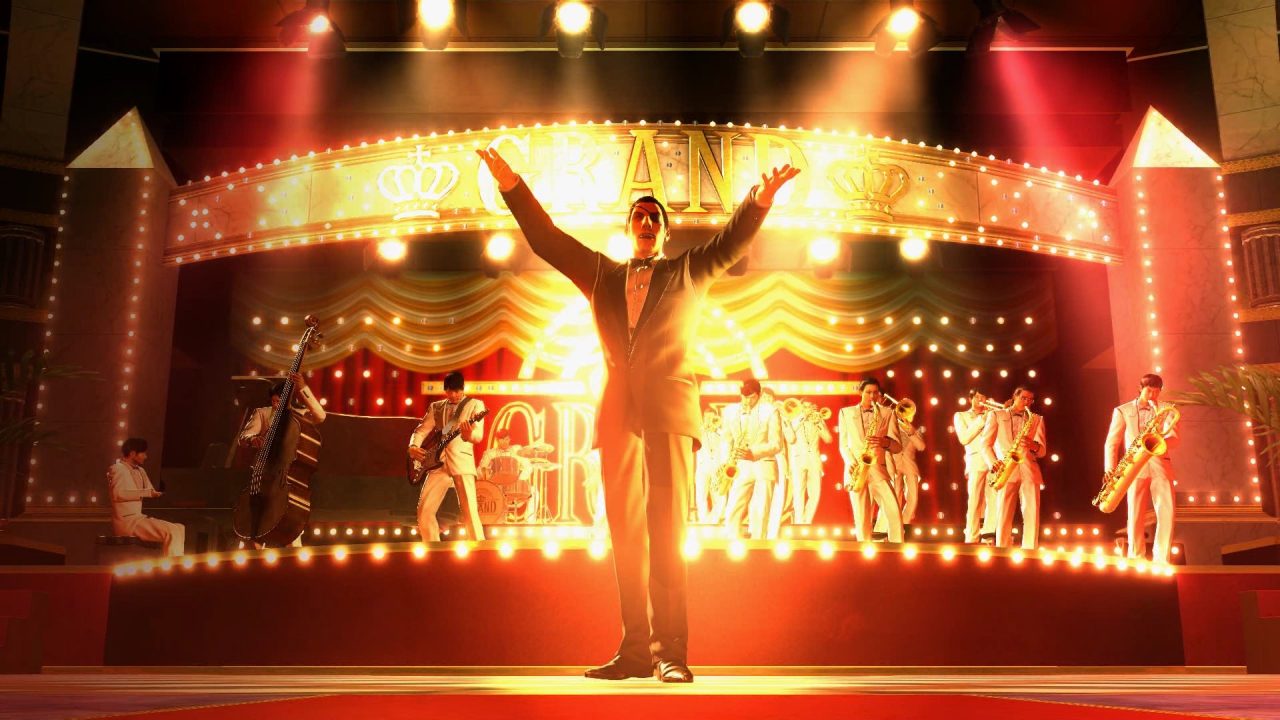
For the soon-to-be fan looking for the path of least resistance, there’s Yakuza 0. It effortlessly captures the sensational, stylish trappings of modern Yakuza games, making it perfect for players who want to experience the sort of thing they see/hear fans talking about.
A prequel to the entire series, 0 happens to be its best representative as a whole, both gameplay and story-wise. If you start with Yakuza 0, know you’re starting with one of the best while avoiding any continuity issues, as many of 0’s references to older games work in reverse! It’s the quintessential modern Yakuza experience, containing the widest array of activities to choose from with one of the tightest gameplay loops you can find in video games.
If a picturesque, poster-child example of a Yakuza game is what you’re most interested in playing (and you want to avoid playing too out of order), this is where you should start. If you like Yakuza 0, it’s almost guaranteed you’ll enjoy the rest of the series.

